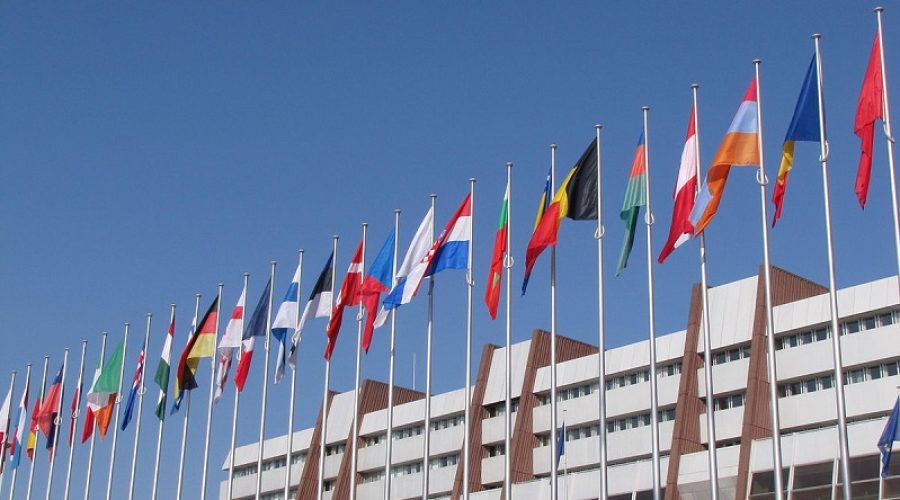STRASBOURG : L’OIAD a assisté en tant qu’observateur à la 3ème réunion du comité d’experts pour la rédaction de la convention sur la protection de l’avocat
La 3ème réunion du comité d’experts chargé de rédiger un instrument juridique international sur la protection des avocats s’est tenue à Bruxelles du 8 au 10 novembre 2022. L’Observatoire a participé en tant qu’observateur, représenté à cette occasion par Laurence Roques, qui a résumé le contenu de la réunion comme suit :
« Massimo Audisio, qui a représenté l’OIAD aux deux premières réunions, avait rappelé que celles-ci avaient surtout porté sur le caractère contraignant de l’instrument avec une sous question concernant la procédure de contrôle du caractère contraignant de cet instrument. Même si une grande majorité des Etats s’est prononcée pour le caractère contraignant, compte tenu de l’absence d’unanimité, (la Turquie s’y est opposée) la question du caractère contraignant de l’instrument a été renvoyée à plus tard.
Cette réunion a été consacrée à étudier les articles de fond de la convention. Il a été convenu de reporter l’examen du préambule à la fin, après avoir examiné tous les articles de la convention, ce qui est plus cohérent car il sera plus aisé de l’écrire une fois qu’un consensus aura été trouvé sur le contenu de la convention.
Les discussions ont tourné à la fois autour des questions de définition que de traduction entre la version anglaise (version originelle en quelque sorte car c’est la langue du rédacteur) et la version française.
- La question de la définition de l’avocat laquelle recoupe des catégories très différentes selon les systèmes juridiques, faut-il le définir dans le texte de la convention ou, au contraire, renvoyer aux législations nationales comme le proposait le CCBE. La discussion reste ouverte. Quid des avocats radiés ou empêchés de s’inscrire à un barreau pour des raisons politiques. Le risque avec la seconde option est de rendre la convention trop restrictive et perdant en efficacité tandis qu’avec la première définition, il y a un risque que les états refusent de signer la convention.
- Les personnes pouvant bénéficier de la protection de la convention. Faut-il l’étendre aux assistants des avocats qui agissent pour le compte de celui-ci ? Cette question renvoie d’ailleurs à celle plus générale d’étendre la protection des représentants des défenseurs des droits de l’homme dont il a été rappelé qu’en principe elle avait été tranchée dans le sens de les exclure dès lors qu’il s’agit d’une convention sur les avocats.
- La définition de « l’association professionnelle », à laquelle l’avocat doit être rattaché pour être couvert par la convention a également fait débat dès lors que dans certains pays, il n’est pas obligatoire d’être inscrit à un barreau pour pouvoir exercer la profession d’avocat ».
- La définition du client auquel il faut rajouter au client qui a donné mandat à l’avocat celui qui le consulte et s’agissant du client potentiel voir le vide juridique s’agissant de l’avocat désigné à l’AJ d’un client incapable ou d’un mineur.
Les difficultés de traduction sont également prégnantes entre la version originelle et la version française afin de trouver à chaque fois un consensus qui concilie les traditions juridiques d’origine anglo-saxonne et de droit continental. (Ex les notions de confidentialité ou secret professionnel qui ne peuvent être traduites par La confidentiality et le legal privilege ou encore celles de respect de la déontologie qui ne peut être traduite par conduite professionnelle qui n’évoque pas grand-chose).
Nous avons notamment entendu deux représentantes de l’association ILIA qui ont évoqué l’importance d’un tel instrument et la nécessité de prévoir une attention particulière sur les avocats défenseurs des droits de l’Homme qui sont les cibles privilégiées des menaces.
Si les discussions sont intéressantes et fructueuses la tâche s’avère plus difficile qu’il n’y paraît compte-tenu des grandes différences entre les systèmes juridiques notamment les systèmes juridiques anglo-saxons et continentaux. Le calendrier originel risque de ne pas être tenu (adoption de l’instrument début 2024) et on s’oriente vers une modification de la méthode de travail avec des sous-groupes dédiés. De même il a été convenu que chacun puisse en amont faire des commentaires avant les prochaines réunions .
Prochaine réunion 1 au 3 mars 2023. Une nouvelle version de la convention suite à cette réunion sera diffusée d’ici au 12 décembre 2022, pour observations attendues d’ici la mi-janvier 2023. »
Consultez le Compte Rendu de la réunion en anglais

